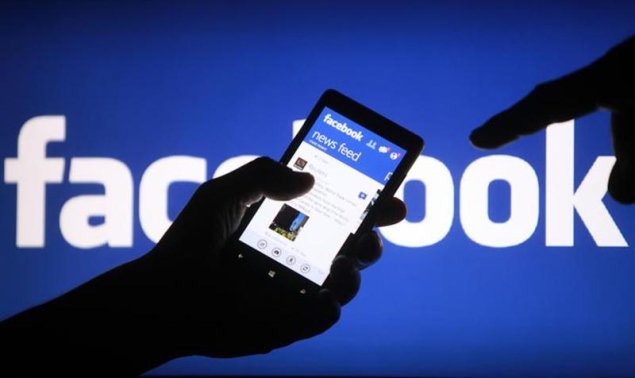- Home
- Social networking
- Social networking News
- Facebook may be making people more polarised: Study
Facebook may be making people more polarised: Study

The study by Georgia Institute of Technology suggests that people who think the majority of their friends have differing opinions than their own engage less on Facebook.
For those who choose to stay logged in and politically active, the research found that most tend to stick in their own circles, ignore those on the other side and become more polarised.
The study also suggests a few design changes that could allow the social media platform to bridge these political differences.
By displaying shared interests between friends during their prickly conversations, Facebook could help diffuse possible arguments and alleviate tension, researchers said.
The study also notes that increasing exposure and engagement to weak ties could make people more resilient in the face of political disagreement.
"People are mainly friends with those who share similar values and interests. They tend to interact with them the most, a phenomenon called homophily," said Catherine Grevet, who led the study.
"But that means they rarely interact with the few friends with differing opinions. As a result, they aren't exposed to opposing viewpoints," said Greve.
According to the study, Facebook's algorithms don't help the cause. Newsfeeds are filled with the friends a person most often interacts with, typically those with strong ties, researchers said.
Grevet suggests that the social media site should sprinkle in a few status updates on both sides of political issues. That would expose people to different opinions, which are typically held by weak ties.
"Designing social media towards nudging users to strengthen relationships with weak ties with different viewpoints could have beneficial consequences for the platform, users and society," said Grevet.
The study surveyed more than 100 politically active Facebook users in the spring of 2013 amid debates about budgets cuts, gay marriage and gun control regulations.
The majority of participants were liberal, female and under the age of 40, mirroring the traditional Facebook user.
More than 70 percent said they don't talk about politics with their friends with different opinions. When they saw something they didn't agree with, 60 percent said they ignored it and didn't comment.
When they did, sometimes it made the person question the relationship and disassociate and from the friend.For the latest tech news and reviews, follow Gadgets 360 on X, Facebook, WhatsApp, Threads and Google News. For the latest videos on gadgets and tech, subscribe to our YouTube channel. If you want to know everything about top influencers, follow our in-house Who'sThat360 on Instagram and YouTube.
Related Stories
- Galaxy S24 Series
- MWC 2024
- Apple Vision Pro
- Oneplus 12
- iPhone 14
- Apple iPhone 15
- OnePlus Nord CE 3 Lite 5G
- iPhone 13
- Xiaomi 14 Pro
- Oppo Find N3
- Tecno Spark Go (2023)
- Realme V30
- Best Phones Under 25000
- Samsung Galaxy S24 Series
- Cryptocurrency
- iQoo 12
- Samsung Galaxy S24 Ultra
- Giottus
- Samsung Galaxy Z Flip 5
- Apple 'Scary Fast'
- Housefull 5
- GoPro Hero 12 Black Review
- Invincible Season 2
- JioGlass
- HD Ready TV
- Laptop Under 50000
- Smartwatch Under 10000
- Latest Mobile Phones
- Compare Phones
- Huawei Pura 70 Pro
- Huawei Pura 70
- Vivo V30e
- Itel Super Guru 4G
- Huawei Pura 70 Pro+
- Huawei Pura 70 Ultra
- Tecno Camon 30 Premier 5G
- Motorola Edge 50 Fusion
- Asus ZenBook Duo 2024 (UX8406)
- Dell Inspiron 14 Plus
- Realme Pad 2 Wi-Fi
- Redmi Pad Pro
- Cult Shock X
- Fire-Boltt Oracle
- Samsung Samsung Neo QLED 8K Smart TV QN800D
- Samsung Neo QLED 4K Smart TV (QN90D)
- Sony PlayStation 5 Slim Digital Edition
- Sony PlayStation 5 Slim
- Voltas 1.5 Ton 3 Star Split AC (183 Vectra Elegant 4503545)
- Hitachi 1.5 Ton 5 Star Inverter Split AC (RAS.G518PCBISF)

















